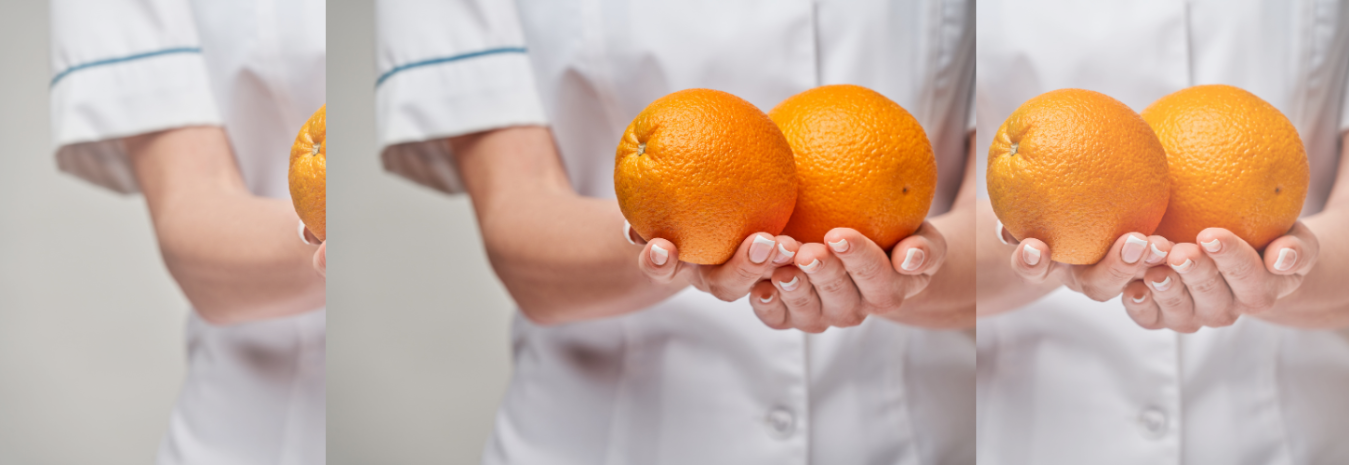Building Strong Teeth

Posted on 08 March 2024
There are countless ways in which we can ensure proper oral health over the years. Brushing and flossing, using a mouthwash and visiting the dentist regularly are all undoubtedly effective strategies.
However, the expression "you are what you eat" is just as important to remember.
While there are plenty of foods to avoid, were you aware that others might actually reverse the damage that was done to your teeth to an extent?
Foods That Can Damage Teeth
It goes without saying that foods extremely high in processed sugar (such as candy bars) can place your oral health in jeopardy. Still, you might be surprised to learn that some other foods could be just as risky.
Dried Fruit
Often billed as the perfect snack in between meals, dried fruit poses some significant risks to your teeth and gums. As the majority of water has been eliminated, these fruits can easily become lodged in small cracks and crevasses. Furthermore, the acidic nature of these fruits may cause damage to your enamel.
Crackers
This could seem a bit counter-intuitive, but crackers should also be eaten sparingly. Crackers are laden with carbohydrates. Carbohydrates will be broken down into complex sugars when consumed. Oral bacteria are attracted to these sugars and this will ultimately lower the pH within your mouth.
Kumbucha
Kombucha is often consumed due to its high nutrient content and gut-friendly bacteria. Unfortunately, many formulations also contain extremely high amounts of sugar. Try to find a sugar-free brand and be sure to rinse your mouth out with water if you still wish to drink kombucha. This will lessen the chances that sugars begin to damage your teeth.
Diet Carbonated Drinks
Although diet drinks such as soda are often touted as tasty sugar-free alternatives, we need to remember that they all contain carbonic acid. As you might have suspected, this acid can damage the teeth and gums over time. If you do not wish to eliminate these drinks from your diet, drink them sparingly.
Lentils and Beans
There is little doubt that beans and lentils are extremely healthy for the body thanks to high concentrations of many vitamins and nutrients. However, they also contain a substance known as phytic acid.
Phytic acid has been shown to prevent the absorption of certain nutrients including magnesium, vitamin D and calcium. It just so happens that these very same substances are vital for your oral health. Alternative options include beans that are soaked overnight or sprouted grains (these contain much lower concentrations of phytic acid).
Five Best Foods for Healthy Teeth
So, what helps strengthen teeth and which foods can be used to create a balanced diet in no time at all? The five examples listed below should provide you with tasty and satisfying solutions.
Grass-Fed Dairy Products
This makes perfect sense when we remember that dairy products are high in vital nutrients including vitamin D and calcium. These are also excellent sources of vitamin K, which many individuals do not receive in adequate quantities. Some examples include beef, eggs and chicken liver.
Cacao
This is great news for anyone with a sweet tooth. Cacao is a sugar-free and all-natural substitute to commercially produced chocolate. It also contains high amounts of chemicals known as polyphenols. Polyphenols can help to kill oral bacteria that would otherwise cause cavities. Dark chocolate with no added sugar is one of the most common forms of cacao.
Leafy Greens
Kale, spinach and arugula are all popular leafy greens, and for good reason. Leafy greens will help to boost the presence of "good" bacteria within your mouth. These foods can help to mechanically cleanse the teeth due to their fibrous nature and their high mineral content may reinforce the enamel.
Fatty Fish
Fatty fish are often included within a healthy diet due to the presence of omega fatty acids. They are also excellent sources of vitamins D, K2 and A.
All of these nutrients are essential in regard to maintaining strong enamel. There is also a growing body of evidence that fatty fish may be able to reduce the severity of specific conditions such as gum disease.
Mackerel, salmon and trout are tasty options to consider. These are also just as effective if you are hoping to reduce your blood pressure or lower your cholesterol intake.
Citrus Fruits
Some of the best foods for healthy teeth and gums likewise fall into the citrus fruit category. There are several reasons behind this observation. Fruits such as oranges and grapefruits contain ample amounts of vitamin C.
Vitamin C is a powerful antioxidant and it can help to reduce inflammation (one of the primary symptoms of gum disease). One study even found that those who added citrus fruits to their diets experienced fewer issues with their gums after only two weeks.
A Balanced Diet for Healthy Teeth
We can now appreciate the crucial role that a diet will play in relation to oral health. Thankfully, there are plenty of ways in which you can receive vital nutrients without having to sacrifice taste or convenience. It is still important to visit a dentist on a regular basis in order to obtain regular check-ups and to treat any problems as soon as they arise. Ultimately, your mouth will thank you for such a concerted effort!
Sources:


